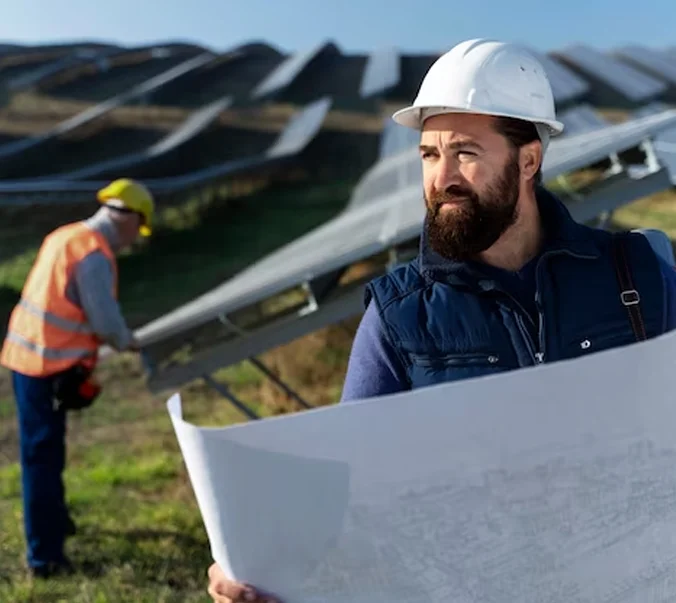The lifespan of solar panels is a crucial factor in the assessment of solar energy investments. Drawing from my extensive experience in the field of solar energy, this article delves into the longevity of solar panels, exploring various aspects that contribute to their durability.
Which Solar Panels Last Longest?
The longevity of solar panels largely depends on their type and quality. Typically, monocrystalline and polycrystalline solar panels are known for their robustness and longevity. High-quality panels from reputable manufacturers can last for 25 to 30 years or more. However, the advancements in solar technology, including newer materials and designs, continually extend this lifespan.
What Is Solar Panel Degradation Rate?
Solar panel degradation rate refers to the rate at which the efficiency of solar panels decreases over time. On average, solar panels degrade at a rate of about 0.5% to 1% per year. This means that after 25 years, a solar panel would typically retain about 75% to 90% of its original efficiency. This degradation rate is an important consideration in the long-term yield and efficiency of solar energy systems.
Factors That Affect Solar Panel Lifespans
Several factors influence the lifespan and performance of solar panels:
- Quality of Manufacturing: High-quality solar panels with robust construction and superior materials tend to last longer.
- Environmental Conditions: Panels exposed to harsh weather conditions, like extreme temperatures, heavy snow, or high winds, may have a shorter lifespan.
- Maintenance: Regular cleaning and maintenance of solar panels can prevent issues such as shading or physical damage, thereby extending their lifespan.
- Installation Quality: Proper installation is crucial to prevent issues like water ingress, which can significantly reduce the panel’s lifespan.
Integrating Retgen for Enhanced Solar Panel Management
Incorporating advanced systems like Retgen in the management of solar energy plants plays a vital role in maximizing the lifespan of solar panels. Retgen, a cloud-based solution developed by Rast Teknoloji, offers real-time monitoring and analysis, which is crucial in detecting and addressing potential issues affecting solar panel performance. Its features like remote control interventions, predictive maintenance services, and detailed reporting allow for proactive management, ensuring solar panels operate at their optimal capacity for as long as possible.
The integration of systems like Retgen enhances the ability to monitor, analyze, and maintain solar panels, thereby maximizing their efficiency and lifespan. As the solar industry continues to evolve, innovations in panel technology and system management are expected to further increase the longevity of solar panels, making solar energy an even more viable and sustainable option.
Certainly, I will develop an article titled “Solar Panel Replacement” focusing on the aspects of replacing solar panels, their longevity, and end-of-life management, while incorporating the Retgen system’s relevance in monitoring and managing solar energy systems.

Solar Panel Replacement
Solar panels, as a key component in renewable energy systems, have a significant lifespan, but like all technology, they eventually require replacement. As an experienced engineer in solar energy systems, I have observed and managed various aspects of solar panel replacement.
Can Solar Panels Be Replaced?
Yes, solar panels can be replaced. Replacement typically occurs when panels no longer function efficiently or have been damaged. The process involves removing the old panels and installing new ones. With advancements in solar technology, newer panels are often more efficient and cost-effective. In my experience, timely replacement not only ensures sustained energy production but also incorporates newer, more efficient technology.
Is it Worth Replacing Old Solar Panels?
Replacing old solar panels is often worth considering. As panels age, their efficiency in converting sunlight into electricity decreases. This degradation impacts the overall performance of the solar energy system. Additionally, new panels come with updated technology that can harness solar energy more efficiently. In my professional practice, I have seen substantial improvements in energy output and cost savings post-replacement, making it a worthwhile investment.
What Will Happen To Solar Panels After Their Useful Lives Are Over?
At the end of their useful life, solar panels require proper disposal or recycling. Solar panel recycling is crucial to manage waste and recover valuable materials like silicon, silver, and aluminum. Some panels are also refurbished for extended use in less demanding applications. The handling of end-of-life solar panels is an important aspect of sustainable energy practices.
Monitoring and Managing Solar Panel Replacement with Retgen
The Retgen system, developed by Rast Teknoloji, plays a significant role in the management of solar energy systems, particularly in monitoring the performance and determining the optimal time for panel replacement. Retgen’s capabilities in real-time monitoring, performance analysis, and predictive maintenance alerts can effectively guide decisions on when to replace solar panels, ensuring the solar power plant maintains its peak performance and efficiency.
With the evolving technology in solar panels, replacement becomes a strategic decision to enhance the efficiency and output of solar energy systems. Systems like Retgen offer invaluable assistance in making informed decisions about solar panel replacement, aligning with the goals of efficiency, sustainability, and cost-effectiveness in renewable energy management.
Solar Panel Recycling Methods
Solar panel recycling is becoming increasingly important as the adoption of solar energy grows worldwide. As an experienced solar energy plant engineer, I have witnessed the lifecycle of solar panels and the necessity for effective recycling methods to ensure environmental sustainability.
Can Solar Panels Be Recycled?
Yes, solar panels can be recycled. The recycling process involves several steps:
- Disassembling: The panel is disassembled to separate aluminum frames and glass layers.
- Processing: The inner materials like silicon cells are then processed to remove the semiconductor materials.
- Chemical Treatment: Chemicals are used to separate and purify valuable materials like silver and silicon.
- Reclamation: Finally, these materials are reclaimed for use in new solar panels or other products.
The recycling of solar panels not only mitigates waste but also recovers precious materials, making it an environmentally and economically beneficial process.
Can You Remove And Reuse Solar Panels?
Solar panels can be removed and reused, provided they are still functional and efficient. The feasibility of reusing solar panels depends on:
- Panel Age and Condition: If the panels are still within their productive lifespan and in good condition, they can be reused.
- Compatibility: The older panels need to be compatible with the new system’s technology.
- Safety and Efficiency: A thorough inspection is necessary to ensure they are safe and efficient for further use.
Reusing solar panels can be a cost-effective option, especially for less demanding applications or in regions where newer technology is less accessible.
Can You Make Solar Panels Out of Recycled Materials?
Creating solar panels from recycled materials is a growing area of innovation. While the technology is still developing, some components of solar panels, like glass and metals, can be effectively recycled and used in the manufacturing of new panels. This approach promotes circular economy principles in the solar energy sector.
Enhancing Solar Panel Lifecycle Management with Retgen
Incorporating systems like Retgen, developed by Rast Teknoloji, plays a crucial role in managing the lifecycle of solar panels, including end-of-life processes. Retgen’s capabilities in monitoring and analyzing panel performance can provide valuable data on when panels are nearing the end of their productive life. This data can guide decisions on recycling or repurposing panels, ensuring that the management of solar panels is as sustainable and efficient as possible.
With technological advancements in recycling methods and the implementation of comprehensive management systems like Retgen, the solar energy industry can significantly reduce its environmental footprint while optimizing resource use.

How Long Do Solar Panels Last Frequently Asked Questions
Can Solar Panels Work Without Sunlight?
Solar panels require sunlight to generate electricity, but they can still function under indirect sunlight or on cloudy days, albeit at reduced efficiency. They cannot produce electricity at night, but energy storage systems can be used to store excess energy generated during the day for nighttime use.
Do Solar Panels Need Maintenance?
Yes, solar panels require maintenance to ensure optimal performance. Maintenance typically includes cleaning the panels, checking for and repairing any physical damage, ensuring wiring connections are secure, and monitoring the system’s overall performance. Regular maintenance helps in prolonging the lifespan and efficiency of solar panels.
How Many Solar Panels Does it Take To Power a House?
The number of solar panels needed to power a house varies based on several factors, including the household’s energy consumption, the geographical location, the efficiency of the solar panels, and the amount of sunlight the location receives. An average home may require between 20 to 25 solar panels to fully offset utility bills with solar.
What Happens After 30 years Of Solar Panels?
After 30 years, many solar panels will still function but at reduced efficiency due to degradation. Most solar panels come with a warranty of 25 to 30 years, after which their efficiency might decrease to 80-90% of their original capacity. At this point, homeowners might consider replacing them to maintain energy production efficiency.
How Often Do Solar Panels Need To Be Cleaned?
The frequency of cleaning solar panels can vary depending on the location and the amount of dust, pollen, leaves, or other debris they are exposed to. Generally, it’s recommended to clean solar panels once or twice a year to maintain their efficiency. In areas with more dust or bird droppings, more frequent cleaning may be necessary.Formun Üstü



